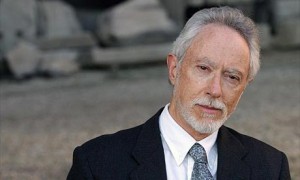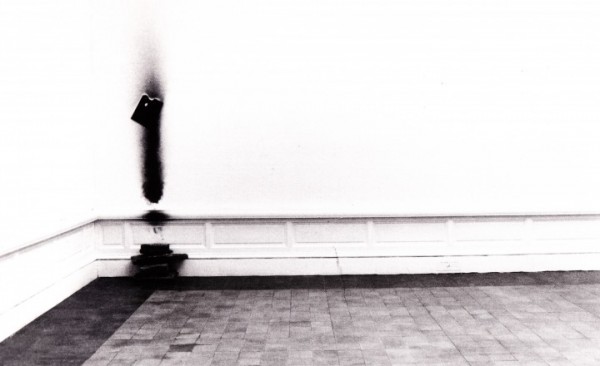Psychic Master Style Manual

1. I am appalled by this A&E show called Psychic Kids: Children of the Paranormal. The show’s shtick is that the grown ups–a psychic and a therapist it looks like–help psychic children “use their powers for good,” i.e. shoving scared little girls into dark rooms and expecting them to keep their wits about them. God, scary kids make for good tv. You know that’s what the show’s creators said sitting around that well-lit Hollywood brainstorming table.
2. I’m interested in this book: The Master Switch by Tim Wu. Here’s what Very Short List has to say about it:
In his new book, The Master Switch: The Rise and Fall of Information Empires, Columbia Law School professor Tim Wu argues that our increasing dependence on a single network (the internet) makes us more and more vulnerable to private interests bent on controlling the flow of information.
Much of the book is taken up with deep-focus histories of radio, telephone, film and television: Wu coins a Gladwellian phrase—”the Cycle”—to describe the trend toward media consolidation in each industry, and wonders how far away we really are from an internet that’s totally under corporate control. “Every other invention of its kind has had its period of openness, only to become the basis of yet another information empire,” he writes. “Is the internet really different?”
David Tudor on Writing

My first purpose in going to Europe was to play American music.
I started with this idea that sound could be obtained from sculptural material or actually from anything through reflections.
If you put yourself in a situation of unpredictability and then find that it’s completely possible to accept it, then you become an observer.
When you look at a score and you see that you are following the instructions and the way they are laid down, you are the composers’ helper.
Performing is very much like cooking: putting it all together, raising the temperature.
I try to find out what’s there and not to make it do what I want but to, you know, release what’s there.
An electronic component can seem to have a personality very much in the same way I try to make loudspeakers have a special voice.
In a sense there was only one principle of sound generation, so I decided to influence the sound output to make as many different kinds of sounds as I could. If I had 12 loudspeakers, I could produce 12 different sounds from the same input material.
Loudspeakers should be made to be destroyed and… disposable.
If you don’t like the sound that the computer produces, then it’s a matter of making it do something that’s interesting to you. And I’ve done it, upon occasion.
I’ve always felt that there’s a point where a piece seems to be alive, that is, living. And that’s the point where I know the composition is finished.
When the sound appears to be live in the space, then it’s free; it seems to flow by itself and not to be caused by some specific intention, especially of an intellectual nature.
As long as there are people who realize that machines are not interesting and that behind any music there has to be a live person, I think that we might be able to overcome the omnipresence of synthesizers and keyboards.
Laurel Nakadate’s Untitled : Pornstars reading poems
We are very proud to house Untitled, a film of pornstars reading poems, directed by Laurel Nakadate, based on text by Dora Malech.
Following the break, an afterword by our own Jackie Wang.
Random Live Reading of Recent Books I Liked #4 (take 2)
You missed the live random reading, but you can still check out the books I read from (the recorder malfunctioned so there is no video archive):
The Mechanics of Homosexual Intercourse by Lonely Christopher [Little House on the Bowery]
Nick Demske by Nick Demske [Fence]
Orange Juice by Timothy Willis Sanders [Awesome Machine]
Asunder by Robert Lopez [Dzanc]
Ventrakl by Christian Hawkey [UDP]
The Size of the Universe by Joseph Cardinale [FC2]
Glass is Really a Liquid by Bruce Covey [No Tell]
7 Controlled Vocabularies by Tan Lin [Wesleyan]
Avatar by Evan Lavender-Smith [Six Gallery]
This week at Five Chapters, a previously unpublished story by Barry Hannah: “Lastward, Deputy James”
A Student Cried in My Poetry Workshop

Every Wednesday at 11 a.m. I have a two hour and forty-five minute poetry workshop with thirteen other students. We spend the first hour of every class discussing a book assigned to us weekly by the professor. Then we workshop seven poems, each student turning in a piece to be discussed every other class. Pretty simple.
This week something happened. We were workshopping a student’s poem. It was about something (I’ll just omit everything explicit about everyone and anything in this class) and followed a similar pattern to some other poems this particular student had turned in for critiquing. People started talking about the poem in the customary manner, which is pretty much everyone suggesting different cuts, extensions, and changes that need to be made.
Then something happened. I’ll preface this by saying that, without great exception, pretty much every student turns in the same poem every week. Subject matter and stuff alter a little bit, but approach and word choice and style all seem pretty constant.
becrazed pickle pickle pickle 5!
11. Paula Bomer book. Mike Young book. Word Riot. Pre-order special ends Dec 1. I reckon you better.
14. From Paper Cuts.
Audience Q: How do you know when you’re getting better?
Lorrie Moore: Maybe you don’t.
Audience Q: How do you know when you’ve found the right ending?
One of the Brooklyn guys named Jonathan: Maybe you don’t.
5. internet stunts versus blurbs: is there a difference? (Or how do I get Tao Lin’s name into this post?)
77. My computer crashed two days ago. Do you back up your writing? How and how many times? Any horror stories like when Hadley lost all of Hem’s stories on the train, etc?
The Myth of the Human w/r/t David Foster Wallace’s “Mister Squishy”

Some of the most singular moments in understanding come on as if being shook: a presence entering the body unto some new consideration of how that entrance might occur. One kind of a map of a version of one’s self might be determined by considering among the terrain of the body a series of approached organs; objects imbibed, in what order, how one’s own output is affected; what is out there; what is. Seeing does this. Language, more indirectly, does this, too: entering as symbols and networks of orchestrations. Some strings of language, as well, leave in their wake a total reinvention of creation as an act, iconing on the map of self, and many selves; updating or widening or recalcifying what any kind of words can, could, or should do.
I can remember with unusual clarity the feeling in me the first time I read David Foster Wallace’s “Mister Squishy.” It was published under the name Elizabeth Klemm in the 5th issue of McSweeney’s in 2000, but by the time the magazine reached my hands I’d already heard on the Wallace listserv that this rather lengthy piece of fiction could only ever be written by him; there could have been nobody else. I was already a rabid Wallace freak; I’d pretty much begun writing fiction as a direct byproduct of reading Infinite Jest, and since then become obsessed. I read this story, long as perhaps 3 normal stories, on a futon in a house in one sitting under a skylight with legs crossed, already ready to be lit. And yet, the particular instance of “Mister Squishy,” even having then been well versed in a way that somehow placed the author’s presence in my daily thoughts (which has not since then stopped), rendered in me that the first time something different even than what I’d been ready to expect: some odd confabulation of provocation, confusion, inundated awe; a feeling rare not only for any kind of language, but particularly for a shorter work. This was something singular beyond even the already neon body of Wallace’s work in constellation, and in particular, beyond the confines of what a story as a “story,” or a novel even, or text as text, traditionally operationally assists to construe.
Since then I’ve read the 63 pages of “Mister Squishy” at least a dozen times. I’m not sure even still I can begin to wholly how to parse the innumerable levels of its moves, using tactics and employments that continue shifting with each reconsideration and further study in the way a Magic Eye painting might if it could get up and walk around: a kind of high water mark of contained language and ambition, since then, now ten years later, still uncontested in the ways of invoking the uninvocable, the void. It is a station, I believe, should be reexamined; it is, in many ways, a kind of key to a beyond, both in the content of the story, and the method of its opening a new kind of affect in languageground, one that still has yet to be, these years later, fully inculcated, or because of time’s way, even unpacked.
November 22nd, 2010 / 11:32 am
Dept. of Arbitraryish Statistics: Three Variations on Three-Act Structure Edition
Coetzee, J.M. Disgrace. New York: Viking, 1999.
Acts: 3.
Chapters: 24.
Chapters per Act: 8.
Pages per Chapter: 8-10. READ MORE >
November 22nd, 2010 / 2:05 am
Mute Prophecies
“In traditional cultures art offered visual and other types of definitions or embodiments of the prevailing cultural and philosophical measure. In times when the measure is broken into contradictory fragments, the role of the artist, in Kounellis’s view, is also shaped by contradiction. The artist must be at the same time social and political on the one hand, individually creative and self-expressive on the other. When the measure is changing, art can function either adversarily to destroy lingering credulity about the past measure or positively to fashion or define a new one. This is the great power of art and the great and serious role of the artist. The artist performs an interruption in the stream of measure, or of false measure as in our time; this interruption is the creative/destructive act through which the lingering appeal of the old measure may be destroyed and a new measure found. In Kounellis’s view, an artist who attempts something else in his or her work does not understand the solemnity of truly belonging to history. His or her art does no real work. It enters the world of the market or of entertainment or of the mass media but it does no real work with the roots of culture and the problem of human nature.”



